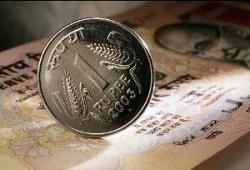 Food inflation rose for the fourth straight week to 15.46 per cent for the week ended September 11, as heavy rains and floods disrupted supplies of essential items.
Food inflation rose for the fourth straight week to 15.46 per cent for the week ended September 11, as heavy rains and floods disrupted supplies of essential items.
While prices of cereals, select vegetables and milk rose sharply during the week, economists said they were hopeful that price situation would ease as rains recede and by end December food inflation could come down to single digit.
"There is a demand supply gap happening on account of improper disbursement and offtake. Floods in several parts of the country are disrupting supply, which is pushing up prices," Religare Capital Markets chief economist Jay Shankar said.
Week on week, food inflation climbed 0.36 percentage points from 15.10 per cent on September 4.
Although there were some signs of moderation in July which stayed on through the first half of August, inflation started to increase in the later half.
Many parts of the country including Delhi, Haryana, Punjab, Uttar Pradesh, Himachal Pradesh, Assam and the desert state of Rajasthan have been witnessing torrential rains and floods that have disrupted supplies of staples.
"I believe that by December-end food inflation would come down to single digit as the effect of good monsoon becomes available to consumers post harvest," Shankar said.
On annually basis, cereal prices rose 6.75
While prices of pulses rose 4.01 per cent, wheat and rice became costlier by 9.21 per cent and 5.52 per cent, respectively.
Among other food items, milk prices soared 23.41 per cent during the week compared to the same period last year, while that of fruits by 10.33 per cent.
Vegetables also became dearer by 6.84 per cent on an annual basis, while potato and onions became cheaper by 48.56 and 1.97 per cent, respectively. Economists also attributed the rise in inflation to the new series of price index, as the old one was based on 1993-94 prices.
"The new base year of 2004-05 gives a better representation of the underlying food inflation in the economy," Shankar said.
To tame the rising inflation, RBI last week increased short term lending (Repo) rate by 0.25 percentage points to 6 per cent, and borrowing (Reverse Repo) rate by 0.50 percentage points to 5 per cent.
The move aims to curb consumer spending and reduce inflationary pressures in the economy.
In its mid-quarterly review, RBI had said that inflation remains "dominant concern" as prices of food articles, which as per the new series rose by over 14 per cent in August, are still contributing to the overall price pressure.






 © 2025
© 2025